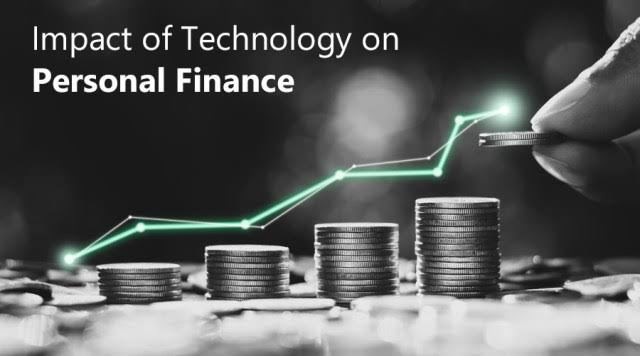Explore how smartphones are revolutionizing personal finance and wealth management. Discover the impact of financial apps, budgeting tools, and investment platforms, and learn how to enhance your financial management with real-time access and educational resources. Understand the benefits and challenges of mobile financial tools and how they shape the future of personal finance.
In recent years smartphones have revolutionized nearly every aspect of daily life, including how individuals manage personal finances and approach wealth management. The advent of sophisticated financial apps and tools has empowered users to take control of financial health with unprecedented ease. This extensive exploration delves into how smartphones influence personal finance. It also examines wealth management highlighting benefits and challenges associated with this digital transformation
The Rise of Financial Apps and Tools
One of most significant impacts of smartphones on personal finance is proliferation of financial apps. From budgeting tools to investment platforms these applications offer users a wide range of functionalities. They are designed to simplify financial management. Budgeting apps such as Mint and YNAB (You Need A Budget) enable users to track their spending. They also help set financial goals and create detailed budgets. These apps often provide real-time updates and notifications. This helps users stay on top of their financial activities.
Investment apps like Robinhood, E*TRADE and Acorns have democratized access to financial markets. They allow users to invest with ease from their smartphones. These platforms offer features like automated investing stock trading and portfolio management. These were once reserved for those with substantial financial resources or specialized knowledge. The ability to manage investments directly from a smartphone has made investing more accessible and appealing to broader audience
Enhanced Financial Literacy
Smartphones have also contributed to improved financial literacy. Educational apps and resources are readily available, offering users information on personal finance, investing, and wealth management. Apps like Khan Academy and Coursera provide courses on financial topics, while podcasts and blogs can offer valuable insights and advice. This easy access to educational content helps users make informed decisions about their finances and fosters a deeper understanding of financial principles.
Convenience and Real-Time Access
The convenience of managing personal finances through smartphones cannot be overstated. Users can check their account balances, review transaction histories, and transfer funds between accounts instantly. This real-time access allows for better financial oversight and quicker responses to any issues that may arise. For instance, if a fraudulent transaction is detected, users can immediately alert their bank and take action to mitigate any potential damage.
Mobile banking has also become increasingly popular, providing users with the ability to conduct various banking transactions without needing to visit a physical branch. Features such as mobile check deposit, bill payment, and account management have streamlined banking processes and reduced the need for in-person visits. This convenience enhances the overall banking experience and makes it easier for individuals to manage their finances efficiently.
Budgeting and Expense Tracking
Effective budgeting and expense tracking are critical components of personal finance management, and smartphones have made these tasks significantly easier. Budgeting apps allow users to categorize their expenses, set spending limits, and track their progress towards financial goals. By linking these apps to their bank accounts and credit cards, users can automatically import and categorize transactions, reducing the need for manual entry and ensuring accurate expense tracking.
Expense tracking apps also provide valuable insights into spending patterns, helping users identify areas where they may be overspending and make adjustments accordingly. This level of visibility can lead to more informed financial decisions and better overall money management.
Investment and Wealth Management
Smartphones have had a transformative impact on investment and wealth management. Robo-advisors, such as Betterment and Wealthfront, leverage algorithms to provide personalized investment advice and portfolio management. These platforms use data and machine learning to create and manage diversified investment portfolios tailored to individual risk profiles and financial goals.
Additionally, smartphone-based trading platforms have made it easier for individuals to buy and sell stocks, bonds, and other assets. The accessibility of real-time market data, along with advanced charting and analytical tools, enables users to make informed investment decisions and stay updated on market trends.
Security and Privacy Concerns
While smartphones offer numerous advantages in personal finance management, they also come with security and privacy concerns. The increased reliance on mobile banking and financial apps raises the risk of cyberattacks, data breaches, and identity theft. Users must be vigilant about securing their devices and using strong, unique passwords for their financial accounts. Two-factor authentication (2FA) and biometric security measures, such as fingerprint recognition and facial recognition, can provide additional layers of protection.
It's also important for users to be cautious about sharing sensitive financial information and to only use reputable apps and services. Regularly updating software and security settings can help mitigate potential risks and ensure a safer financial management experience.
The Future of Smartphones in Personal Finance
As technology continues to advance, the role of smartphones in personal finance and wealth management is likely to evolve further. Innovations such as artificial intelligence (AI) and machine learning are expected to enhance financial apps and tools, offering even more personalized and efficient solutions. AI-driven financial planning and predictive analytics could provide users with more accurate forecasts and actionable insights.
Additionally, the integration of blockchain technology and cryptocurrencies may reshape the landscape of personal finance and wealth management. As these technologies become more mainstream, smartphones will likely play a central role in facilitating transactions, managing digital assets, and tracking financial activities.
In conclusion, smartphones have had a profound impact on personal finance and wealth management, offering users a range of tools and resources to better manage their finances. From budgeting and expense tracking to investment and wealth management, the convenience and accessibility provided by smartphones have revolutionized the way individuals approach their financial lives. While challenges such as security and privacy concerns remain, the continued advancement of technology promises to further enhance the role of smartphones in financial management, shaping the future of personal finance.
